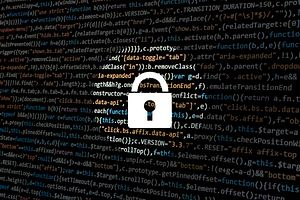A blockbuster report in the Washington Post has revealed the previously unrealized extent of U.S. cryptographic intelligence-gathering during the Cold War. Building on previous reporting from the Baltimore Sun but in possession of an internal CIA history, Greg Miller has detailed how, in association with West Germany, the United States acquired control of the major manufacturer of cryptographic equipment after World War II and used this control to facilitate the tapping of allied and adversary communications.
The Swiss firm in question, Crypto AG, manufactured equipment for many countries around the world that had declined to develop their own cryptographic equipment. Soviet bloc countries (including China and the USSR) stayed away from Crypto AG, relying on their own cryptographic technology. The Americans and the Germans eventually fell out over the extent to which the United States was listening to allies as well as adversaries. Control of Crypto AG gave the U.S. access to the activities of many of its allies, including repressive Latin American governments during “Operation Condor,” a joint project to repress leftist political movements.
The extent of penetration into Asia remains uncertain, but numerous Asian countries purchased Crypto equipment. These include Bangladesh, Burma, India, Indonesia, Japan, Malaysia, Pakistan, the Philippines, South Korea, and Thailand. Vietnam also purchased such equipment, although the report doesn’t specify whether the buyer was North Vietnam or South Vietnam. It remains unclear whether the use of Crypto AG machines lent the U.S. insight into South Korea’s nuclear program, or South Vietnam’s internal politics.
As of yet there has been little public reaction to the revelations, possibly because much of the information emerged following a 1995 report in the Baltimore Sun. The Washington Post expose has considerably more detail regarding how the United States conducted the operation, however. The era of Crypto AG eventually passed because of changes in technology. Encrypted apps made it much easier for officials to contact one another, with convenience superseding concerns about security.
But the revelations of just how deeply the United States had compromised the communications of both its allies and its adversaries lends some insight into why the U.S. intelligence community has reacted with panic about the development of end-to-end encryption and similar technologies. For decades, control of Crypto AG provided the U.S. with almost unimaginable insight into how countries around the world made decisions; the development of new technologies necessarily undercut that degree of transparency. The revelations have also raised questions about U.S. policy towards Huawei; the U.S. has complained that allowing Huawei a foundational position in the 5G market will give China the same access to intelligence that the United States took for granted for decades.

































